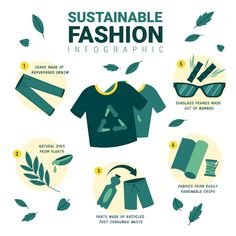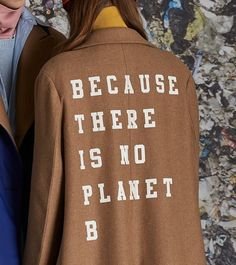Redefining Style: The Rise of Sustainable Fashion
In recent years, the fashion industry has undergone a transformative shift towards sustainability, driven by growing consumer awareness and concern for the environment. Sustainable fashion, once considered a niche movement, has now emerged as a mainstream trend, influencing brands, designers, and consumers worldwide. From eco-friendly materials to ethical production practices, the ethos of sustainability is reshaping the way we think about style and consumption. In this article, we’ll explore the evolution of sustainable fashion, its key principles, and how it’s shaping the future of the industry.
Understanding Sustainable Fashion
Sustainable fashion encompasses a holistic approach to design, production, and consumption that minimizes environmental impact and promotes social responsibility throughout the supply chain. Unlike fast fashion, which prioritizes cheap, disposable clothing, sustainable fashion emphasizes longevity, quality, and ethical practices. Key principles include:
Environmental Consciousness: Sustainable fashion aims to reduce resource depletion, minimize pollution, and combat climate change by utilizing eco-friendly materials, reducing waste, and implementing energy-efficient processes.
Social Responsibility: Beyond environmental concerns, sustainable fashion also addresses social issues such as fair labor practices, worker rights, and community empowerment. Ethical production ensures that garment workers receive fair wages and safe working conditions.

Circular Economy: Adopting a circular economy model, sustainable fashion seeks to eliminate waste by designing products for longevity, promoting repair and reuse, and recycling materials to create new garments, thus reducing reliance on virgin resources.
Sustainable Fashion Innovations
Eco-Friendly Materials: Embraces a diverse range of eco-friendly materials, from organic cotton and hemp to recycled polyester and TENCEL™ lyocell. These materials offer alternatives to conventional fabrics that require large amounts of water, pesticides, and chemicals in their production.
Ethical Production: Ethical production practices ensure that garment workers are treated fairly and work in safe conditions. Certifications such as Fair Trade and SA8000 provide assurance that brands adhere to labor standards and support social equity.
Zero-Waste Design: Zero-waste design techniques aim to minimize fabric waste during the manufacturing process by optimizing pattern layouts and utilizing leftover scraps creatively. Designers such as Zero Waste Daniel and Holly McQuillan champion this approach, turning fabric remnants into unique garments and accessories.
Upcycling and Remade Fashion: Upcycling involves repurposing discarded materials or pre-loved clothing to create new garments, reducing waste and extending the lifespan of textiles. Brands like Reformation and Patagonia’s Worn Wear program exemplify the potential of upcycled fashion to marry sustainability with style.

The Impact of Sustainable Fashion
Environmental Benefits: Reduces the industry’s ecological footprint by conserving water, reducing carbon emissions, and minimizing waste. By choosing sustainable materials and production methods, brands can mitigate the environmental impact of their operations and contribute to a healthier planet.
Social Justice: Ethical production practices uphold human rights and support vulnerable communities by providing fair wages, safe working conditions, and opportunities for economic empowerment. By prioritizing social responsibility, promotes dignity and equity within the industry.

Consumer Empowerment: As consumers become more conscious of the environmental and social implications of their purchasing decisions, sustainable fashion empowers them to make ethical choices that align with their values. By supporting transparent and responsible brands, consumers can drive positive change and demand accountability from the fashion industry.
Embracing a Sustainable Future
As the momentum of continues to grow, it’s clear that sustainability is not just a trend but a fundamental shift in the way we approach style and consumption. By prioritizing environmental stewardship, social equity, and consumer empowerment, offers a pathway towards a more ethical and resilient industry. Whether it’s choosing eco-friendly materials, supporting ethical brands, or advocating for systemic change, each individual has the power to contribute to a more sustainable future through their fashion choices. Together, we can redefine style and build a fashion industry that is both beautiful for generations to come.
